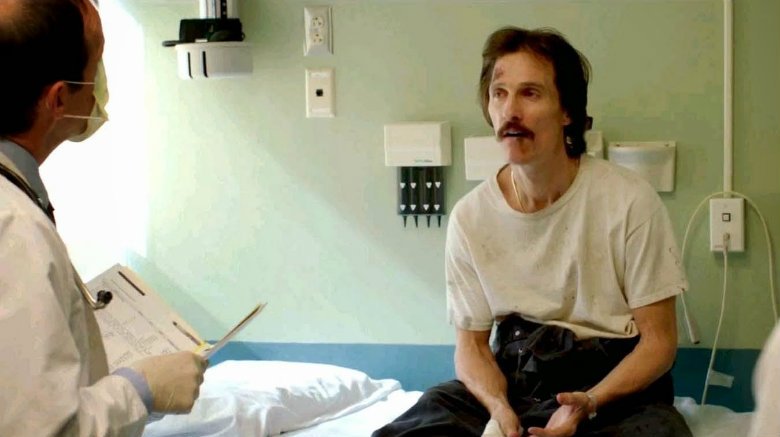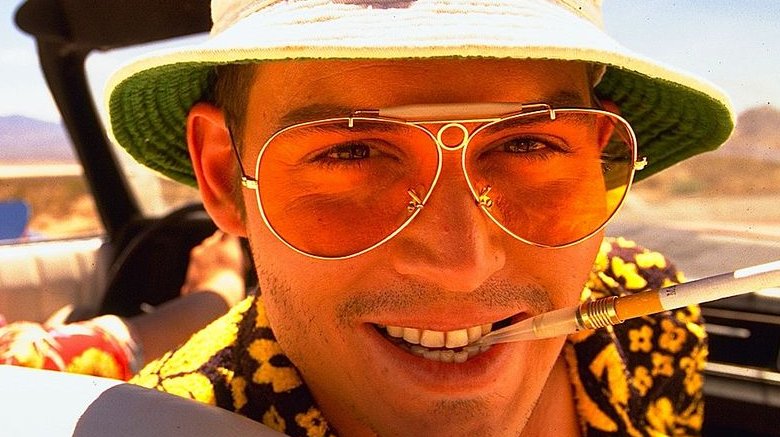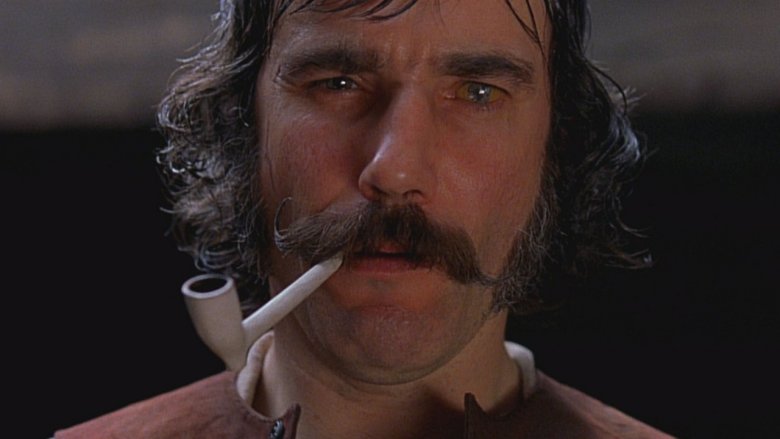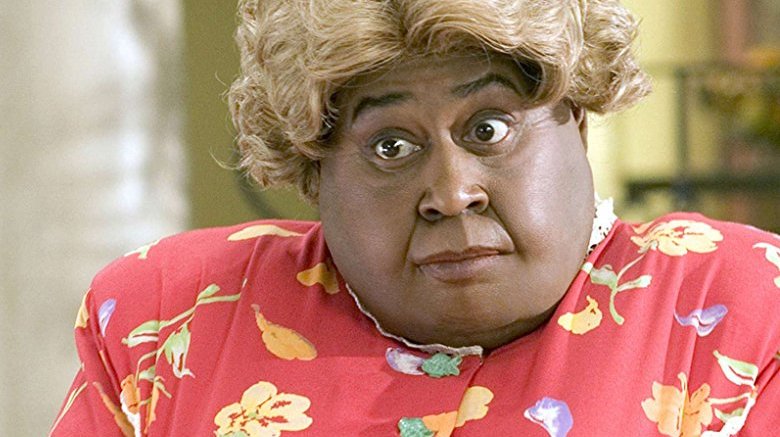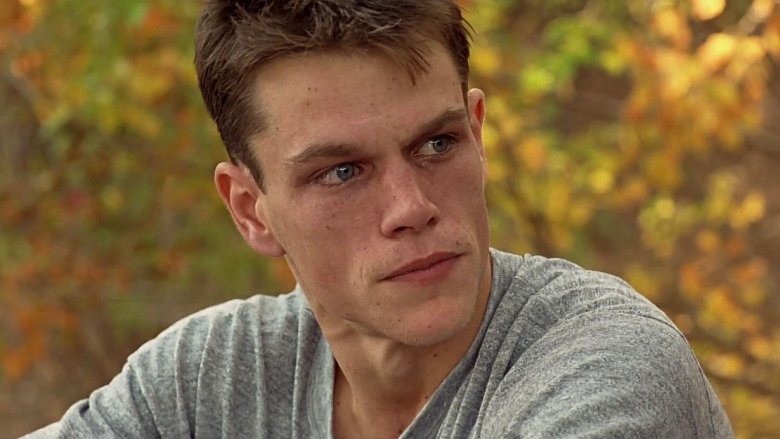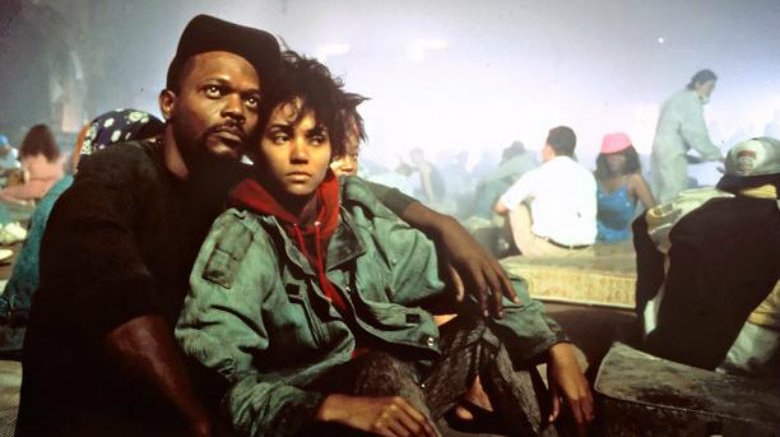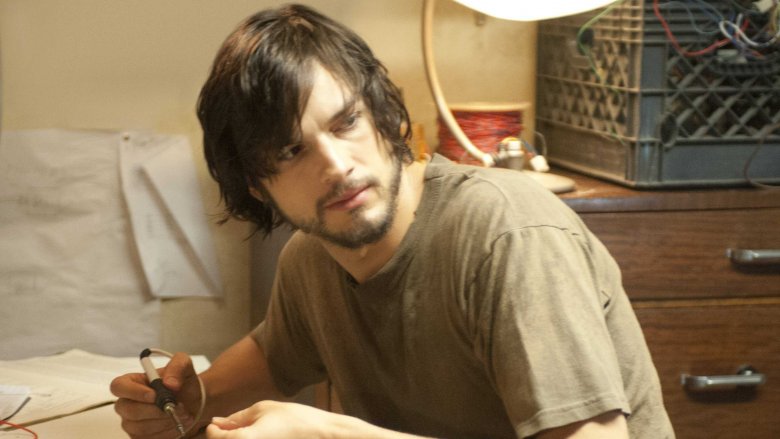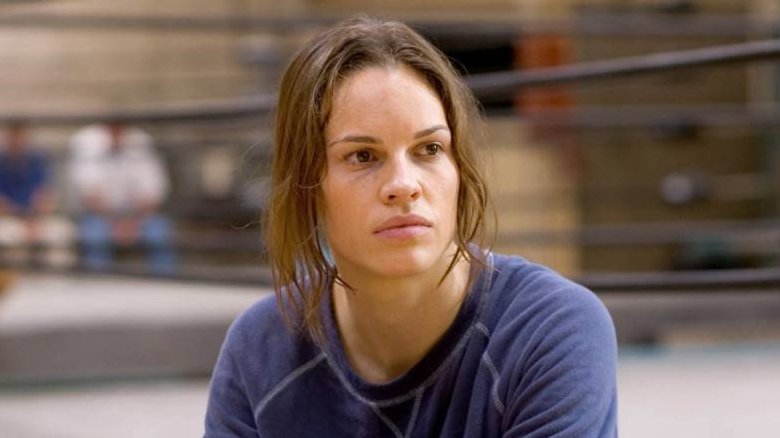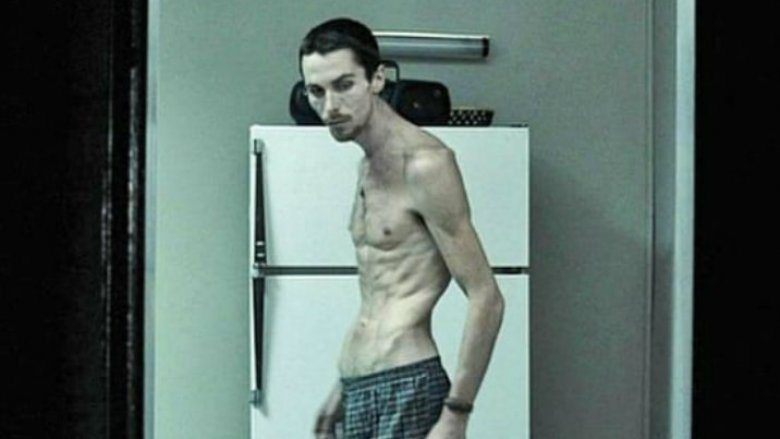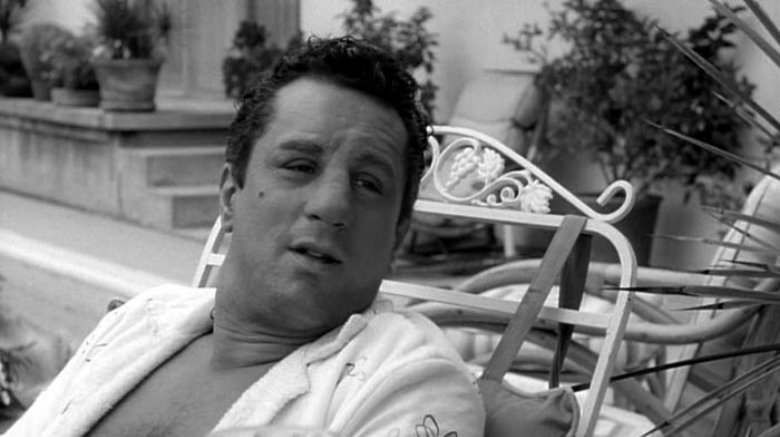Actors Who Could Have Died Preparing For Their Role
Acting is a far more serious craft than some people might realize. For months at a time, performers embody a character—and not just when they're on set, either. Long before the cameras start rolling, actors prepare for their roles by memorizing lines and conducting research while striving to perfect every mannerism. Well, the good ones do, anyway.
Sometimes, though, this extensive preparation comes at a cost—and we don't mean sleep deprivation or missing out on family bonding time. Join us as we discover which actors went to surprising extremes and almost died preparing for their roles. Was the price they paid really worth it? Did all this effort produce a cinematic masterpiece? We'll let you be the judge.
Matthew McConaughey (Dallas Buyers Club)
Following a string of fluffy rom-coms in the late 2000s, Matthew McConaughey reignited his career with a run of critically acclaimed movies that included Mud, Magic Mike and Killer Joe, all of which culminated in an Oscar win for his star turn in Dallas Buyers Club.
Hype around the McConaissance certainly helped McConaughey's chances at the award ceremony, but it was the role of Ron Woodroof and the weight loss his character required that truly put McConaughey ahead of the competition. However, it turns out that the actor's Oscar win very nearly cost him his sight.
After dropping 38 pounds to play the real-life AIDS sufferer, McConaughey started experiencing problems with his vision and immediately consulted doctors for medical help. Fortunately, the effects weren't permanent, although McConaughey did reveal that the extreme stress he put his body through was still affecting his sight over a year later. If McConaughey had continued down this dangerous path of self-imposed starvation, it's likely that the effects could have been even more dangerous. Fortunately, the star regained his impressive physique with no permanent harm.
Johnny Depp (Fear & Loathing In Las Vegas)
Fear & Loathing In Las Vegas represents an interesting turning point in Johnny Depp's career, arriving at the tail end of his indie run in the '90s before mainstream success catapulted him to the A-list. Months before filming began, author Hunter S. Thompson allowed Depp to live in his basement to prepare for the movie, based on one of his most successful books. During his time in the house, Depp copied old manuscripts, taped conversations and even wore Thompson's old clothes. The star has since shared fond memories of this time, explaining that "[Thompson] was really being very paternal at this point."
However, Thompson's act of generosity could have led to Depp's untimely death. After five days or so, Depp discovered that the cigarettes he'd been smoking in the basement could have blown the house sky high, thanks to the gunpowder keg stored down there beside him.
Understandably, Depp stopped smoking down there upon making this discovery and went on to film his part in Fear & Loathing In Las Vegas, which became a critical and financial failure at the box office. On the plus side, this oddity in Depp's filmography developed cult status in the years that followed, and the film was eventually made part of the celebrated Criterion Collection.
Daniel Day-Lewis (Gangs Of New York)
Daniel Day-Lewis has become the poster child for method acting in the modern age, taking extreme measures to prepare for every movie he stars in. Who can forget when the eccentric star refused to leave his wheelchair while filming 1989's My Left Foot, allegedly breaking two ribs after being hunched over for too long? Or how about when Lewis lived on prison rations and asked the crew of In The Name Of The Father to hurl abuse at him between takes? Surprisingly, though, the most dangerous preparation that Day-Lewis undertook for a role actually sounds far safer than any of these other approaches in theory.
Before playing the part of Bill the Butcher in Martin Scorsese's Gangs of New York, Lewis refused to wear a warm coat while walking around the streets of New York in December, because the poor 19th century character he was playing would have never owned such a luxury. Unsurprisingly, the threadbare coat he sported didn't do much to stave off the cold in the heart of winter, and Lewis caught pneumonia—then apparently initially refused treatment because the medicine wouldn't have been period appropriate.
Although Lewis suffered what could have been a life-threatening ordeal, it's hard not to be amused by the fact that inappropriate clothing turned out to be far more dangerous than the circus performers who taught him how to throw knives for the role.
Martin Lawrence (Big Momma's House)
Comedians always need to have a joke or two up their sleeve, but the real challenge of comedy lies in the physicality of the performance, something Martin Lawrence knows all too well following his part in Big Momma's House.
To prepare for the latex fat suit that the role of Big Momma would require him to wear, Lawrence decided to jog wearing heavy clothing and a plastic suit in 100-degree heat. At the end of his ill-fated run, Lawrence collapsed due to extreme dehydration and heat exhaustion. When he first arrived at the hospital, his body temperature hit a startling 107 degrees and a ventilator was required to help him breathe after he slipped into a coma that lasted for three days.
When Lawrence woke up, the doctors performed a scan that revealed that there was no permanent brain damage and kidney dialysis would not be required, even though the attending physicians initially feared that this might be the case. Big Momma's House went on to devour the competition and become a surprise box office smash, even kickstarting its very own franchise. Was it worth this huge risk to Lawrence's health?
Matt Damon (Courage Under Fire)
For his breakout role in Edward Zwick's wartime movie Courage Under Fire, Matt Damon took desperate measures and underwent an extreme diet to play former soldier Specialist Andrew Ilario. Traumatized by the effects of war, Damon's character had become addicted to heroin, so Damon lost 40 pounds in order to portray the toll these drugs can take on the human body.
Unfortunately for Damon, his strict diet took a toll on his health in real life, too. For months after filming ended, the star had to remain under strict medical supervision and take medication for the damage he'd inflicted on his adrenal gland. The young actor later regretted his methods and was even told by a doctor that undergoing an unsupervised diet such as this could have permanently shrunk his heart if he'd continued much longer.
What didn't shrink, though, was Damon's star power. His performance in the role of Ilario helped put Damon on the radar and soon after, he was cast by director Francis Ford Coppola in the lead for The Rainmaker in 1997. Hollywood success and five Academy Award nominations beckoned, including a win for writing the screenplay of Good Will Hunting alongside Ben Affleck.
Halle Berry (Jungle Fever)
Ten years before Halle Berry won an Academy Award for her part in Monster's Ball, she had to beg director Spike Lee for her first role in Jungle Fever. Lee wanted Berry to read for another part, but she was determined to play a crack-addled prostitute for her first role on the big screen, and eventually, she won him over.
To prepare for filming, Berry visited a real-life crack den with the help of an undercover police officer who forced her to wear a bulletproof vest during their excursion. While that's a rather dangerous way to prepare for a role, what's arguably even riskier is the fact that Berry also didn't wash for days while working on set. Fortunately, the cast and crew were rather tolerant of Berry's extreme acting methods.
Berry felt particularly bad for co-star Samuel L. Jackson, who had to bear the brunt of her hygiene—or lack thereof—but for his efforts, he did end up winning an Award for Best Supporting Actor at Cannes Film Festival.
Ashton Kutcher (Jobs)
Eager to prove himself as a serious actor, Ashton Kutcher took on the role of American entrepreneur Steve Jobs in a 2013 biopic directed by Joshua Michael Stern. Speaking after the premiere screening of Jobs at Sundance, Kutcher told the audience he felt close to the film's subject, as they both shared a fascination for tech, and he also admired the Apple founder's resilience.
To prepare for this part, Kutcher grew his hair long and spent hours studying tapes of the Apple CEO in action to help him replicate his various mannerisms. It turns out that wasn't enough, though. Before filming, Kutcher also decided to replicate his subject's diet and only ate fruit, nuts, and seeds. While this might sound healthy in theory, Kutcher wound up hospitalized for pancreatitis just a few days before shooting began.
"The fruitarian diet can lead to, like, severe issues," Kutcher explained. "I was like doubled over in pain. My pancreas levels were completely out of whack. It was really terrifying... considering everything."
While Kutcher recovered in time for shooting to commence, the film didn't fare as well, scoring a lackluster 28 percent rating on Rotten Tomatoes. On the plus side, though, Jobs did gross $35.9 million worldwide, recouping its $12 million budget to become a modest box office success.
Hilary Swank (Million Dollar Baby)
It's not unusual for actors working on fight movies to suffer from painful injuries, but Hilary Swank endured a more dangerous wound than most while preparing for Million Dollar Baby—and it all started with a simple blister.
As a result of having to pivot on her feet constantly during training, Swank developed a blister on her right foot which she claimed was the size of her palm. During an interview with correspondent Mike Wallace for 60 Minutes, Swank explained how it became impossible for her to train or walk on the blister, so she popped it herself. While that sounds more gross than anything, Swank's actions led to a dangerous staph infection that could have been fatal if left untreated.
Fortunately, Swank found the medical help she needed, and recovered to begin production on Clint Eastwood's critically acclaimed smash. Million Dollar Baby went on to be nominated for seven Academy Awards and won a total of four, including a Best Actress trophy for Swank—her second win following the success of Boys Don't Cry in 1999.
Christian Bale (The Machinist)
Brad Anderson's disturbing thriller was lauded for its fascinating insight into paranoia and delusion, but ultimately, The Machinist will always be remembered most vividly for Christian Bale's jaw-dropping performance in the lead role. To play the part of Trevor Reznik, a man suffering from insomnia and other serious psychological problems, Christian Bale dropped over 60 pounds, reducing his body mass to just 120 pounds.
Bale's wife was understandably worried about his health, and it's no wonder when you consider how the dedicated actor managed to achieve his weight goal. "I came up with the absolutely brilliant method," he later recalled, "of just smoking cigarettes and drinking whiskey to lose weight."
During a Reddit AMA, co-star Michael Ironside revealed an even more disturbing insight into the dangerous extremes that Bale's diet took, explaining how starvation had ravaged his body. "I went over, and it was Chris. And he said, 'Can you look at this?' And he turned and dropped his overalls, which he was naked under... and the muscles in his ass had literally dropped out of the sockets of his hips... I said, 'You've gone beyond body fat, and now you're into actual muscle tissue and things are being affected."
As if that wasn't dangerous enough, Bale only had six weeks to regain his normal weight before putting on the cape and cowl for his Batman Begins screen test, and then just five months more to develop a physique worthy of the caped crusader.
Robert De Niro (Raging Bull)
Now regarded as a masterpiece of filmmaking and one of Martin Scorsese's best movies, Raging Bull suffered a number of setbacks during production that could have knocked the film out of the running before it even got started.
Actor Robert De Niro transformed himself for the role of Jake La Motta, training for nearly a year to embody the part of a real-life boxer. During training, he boxed around 1,000 rounds in a gym to add 20 pounds of muscle to his frame, and even broke his mentor's rib along the way. However, when production in L.A. was completed, De Niro was sent to Europe on an eating spree, as the role required him to gain weight so he could play La Motta on the decline too.
After gaining 60 pounds over a period of four months, De Niro returned to New York to finish filming Raging Bull, but the weight gain came at a price. After his star showed signs of struggling with his posture, breathing and even talking, Scorsese decided to temporarily halt production, as he believed De Niro might be at risk of a heart attack. This makes even more sense when you consider that the two men were friends in real life—and one could argue that Scorsese was returning the favor after De Niro helped save Scorsese's life a few years earlier following his cocaine overdose.
